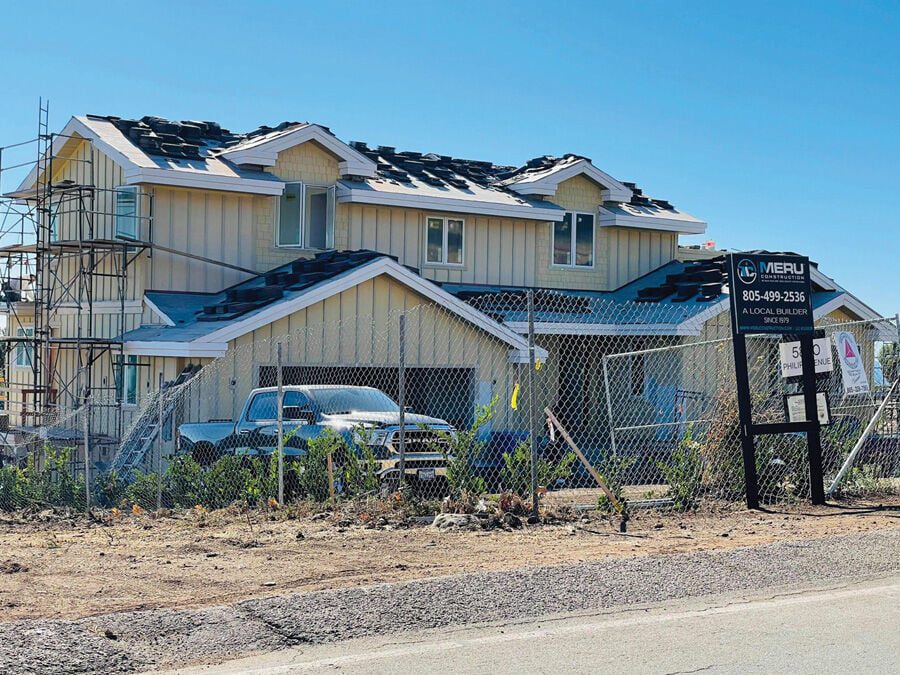Malibu is still only a fraction of the way through rebuilding all the homes destroyed in 2018’s devastating Woolsey Fire. Last week, Malibu City Council decided the fee waiver program created in the fire’s aftermath to expedite and decrease the cost of rebuilds will remain in place for another year.
The council made the decision during a Wednesday, Feb. 24, meeting, which had been postponed from Monday, Feb. 22, due to internet issues at City Hall.
Fee waivers were extended after council members, city staff and residents shared horror stories of families who had lost their homes in the Woolsey Fire and then had to fight their insurance companies—while dealing with the pandemic and a multitude of other misfortunes—to get funds necessary to rebuild.
Resident Marissa Coughlan, for example, spoke of a Point Dume family whose insurance company still had not paid them except for debris removal.
“It was a horrible experience to watch them go through this,” Coughlan said. “They’ve had cancer, they’ve had COVID, they’ve lost their home, everything since then.”
Yolanda Bundy, the city’s environmental sustainability director who guides homeowners through the rebuild process, pleaded with the council to center those who lost their homes in their consideration of whether or not to extend the deadline for homeowners to apply for construction fee waivers.
“I get emotional about this because I get to see it,” Bundy said. “I get to see the desperation that this has been almost more than two years and they’re still going through our process. We have only issued 169 permits and I wish we had issued 488. I am just going to be honest with you, we are not there yet.”
Mayor Mikke Pierson proposed the original fee waiver program shortly after the fire. He also spoke of the rebuild process’ slow pace and of the importance of getting families back into homes, noting that he had run into one family near his home who were “beaming” now that their project was finally moving along.
Council Member Bruce Silverstein also advocated for the program.
“Anyone who had their home taken from them by the Woolsey Fire shouldn’t have to pay to put their house back where it was,” Silverstein, whose work prior to his council election included advocating for Woolsey Fire victims, said. He also pointed out that the families who still had not applied for the fee waiver were the ones who needed it most, because those are most likely the families who did not have money outside of their insurance or who did not have good enough insurance to begin the rebuild process immediately like some of their neighbors.
Silverstein wondered aloud why the city could not extend the waiver program indefinitely, to which Assistant City Manager Lisa Soghor answered that the program had created a deadline back in 2018 so as not to bind future city councils to an old agreement.
Mayor Pro Tem Paul Grisanti motioned to extend the deadline for a number of months; Pierson asked instead for a year. The whole council was in agreement about passing the waiver extension—with one caveat.
Council Member Steve Uhring expressed concern that a number of homeowners had been using the fee waiver program not to rebuild similar homes (“like-for-like” or “like-plus-10-percent”) as the program’s original wording had dictated, but to build homes with extra add-ons.
Uhring said that this was unfair, as some rebuilders did not know about this loophole and thus were not able to save themselves money while some of their neighbors were. He also said the city might be losing potential money through this loophole—money that could fund other key programs around town.
Planning Director Richard Mollica explained that while the planning department likes for builders to condense their plans into one streamlined plan, the city had no way to enforce that. Bundy also spoke up, saying that most of the additions Uhring was talking about were often for families who had had children since the fire and wanted to add an extra room or older residents who wanted to build small music studios that might be their livelihoods after they retired.
The group agreed that these types of additions still deserved a pass, tweaking the program to allow more residents to take advantage of this in an effort to equalize the rebuild process.
As for the money potentially headed out of the city’s coffers because of the loophole, Council Member Karen Farrer acknowledged Uhring’s points, but said she felt it was important to continue the waiver program, despite potentially lost revenue.
“I don’t think it’s wrong to put people who lost their homes to the Woolsey Fire as a priority,” Farrer said.

